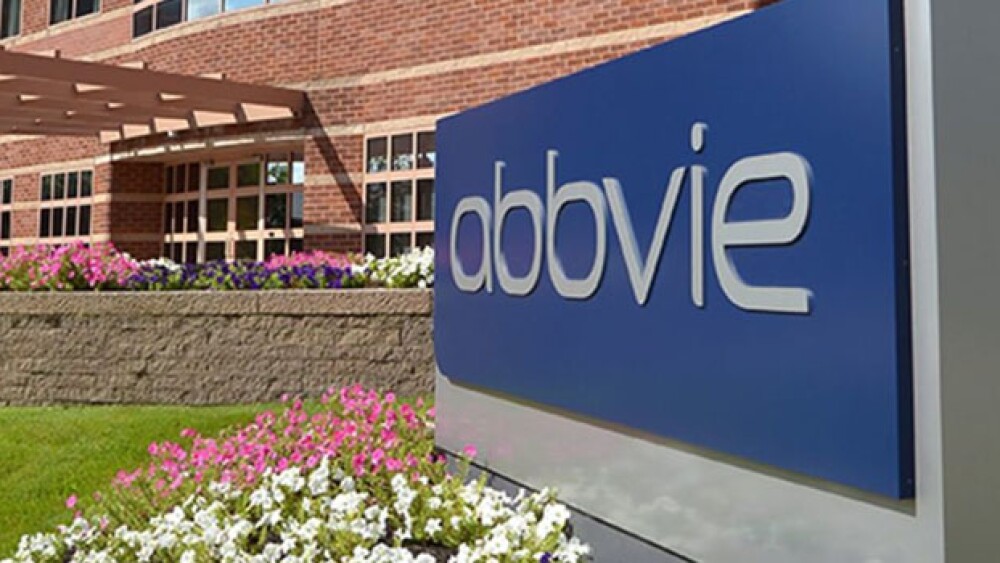As the $63 billion acquisition of Allergan by Chicago-based AbbVie slowly churns through the Federal Trade Commission (FTC) process, the company continues to make the news. Here’s a look.
As the $63 billion acquisition of Allergan by Chicago-based AbbVie slowly churns through the Federal Trade Commission (FTC) process, the company continues to make the news. Here’s a look.
Earlier this week, AbbVie presented new data evaluating the safety and efficacy of Skyrizi (risankizumab) at two-and-a-half years in adults with moderate to severe plaque psoriasis. AbbVie also provided additional data on Humira (adalimumab) and its JAK inhibitor upadacitinib at the 28th European Academy of Dermatology and Venereology (EADV) Congress held in Madrid, Spain.
“Leveraging more than two decades of clinical experience with Humira, AbbVie recently expanded its dermatology portfolio with the approval of Skyrizi for patients living with moderate to severe plaque psoriasis,” said Marek Honczarenko, vice president, global immunology development, AbbVie. “The new data presented at EADV will advance the knowledge around new and existing treatments for serious skin diseases, like psoriasis, as well as diseases with high levels of unmet need, such as atopic dermatitis and hidradenitis suppurativa.”
In somewhat related news, AbbVie’s newest TV ads for Skyrizi hit the air yesterday. There are three ads, one 60-second and two 30-second spots. According to TV ad tracker iSpot.tv, the spending hits around $15.6 million.
Skyrizi launched in May and the first TV ad ran in late August. The campaign is called “Nothing is Everything,” focused on the joy of clearer skin.
At least part of the idea is for Skyrizi to replace Humira, which is facing the patent cliff in the next couple years. That’s a steep hill to climb, though. Although Skyrizi brought in $48 million in its first two months of sales, Humira, even though it is beginning to slow from biosimilar competition, brought in $19.9 billion in 2018.
Skyrizi faces competition from Johnson & Johnson’s Tremfya, which was approved in 2017, and Novartis’ Cosentyx and Eli Lilly’s Taltz.
AbbVie told FiercePharma that the public needed more education about psoriasis solutions because many patients “still struggle to achieve their treatment goals due to the complex nature of the disease and variability of treatment response. Skyrizi is an important advance in the treatment of adults with moderate to severe plaque psoriasis who are seeking high levels of skin clearance that can be maintained over time.”
On October 10, Reata Pharmaceuticals announced it had reacquired the development, manufacturing and commercial rights to its Nrf2 activator product platform that it originally licensed to AbbVie for territories outside the U.S. As part of this, Reata now has exclusive, worldwide rights to develop, manufacture and commercialize bardoxolone methyl, omaveloxolone, and all other next-generation Nrf2 activation except for certain Asian markets for bardoxolone that are licensed to Kyowa Kirin Co.
Reata will pay AbbVie $330 million in cash, mostly for the rights to bardoxolone. There will be an upfront payment this year of $75 million, with the remainder paid in installments in the second quarter of 2020 and the fourth quarter of 2021. AbbVie will be eligible for low single-digit, tiered royalties from global sales of omaveloxolone and certain next-generation Nrf2 activators, but no royalties on bardoxolone.
“AbbVie has been an excellent partner, and our collaboration was instrumental in the clinical development of bardoxolone and omaveloxolone,” said Warren Huff, Reata’s chief executive officer and president.
The original deal took place in 2010, when AbbVie was still part of Abbott. At the time, AbbVie paid $450 million for the international rights to the products.
And in late September, the FTC made a second request for information from AbbVie over the pending acquisition of Allergan. This expends the waiting period another 30 days after they comply with the request, although these periods are often extended or terminated earlier by the FTC. AbbVie indicates that it and Allergan are cooperating fully with the FTC and expect to close the merger in early 2020.





